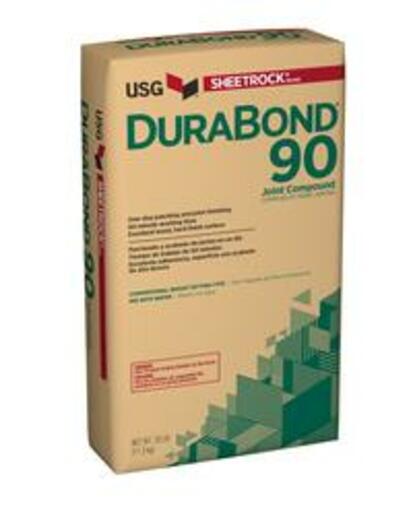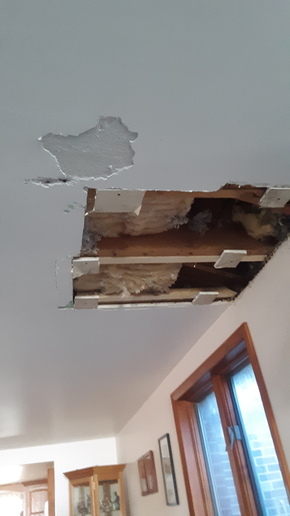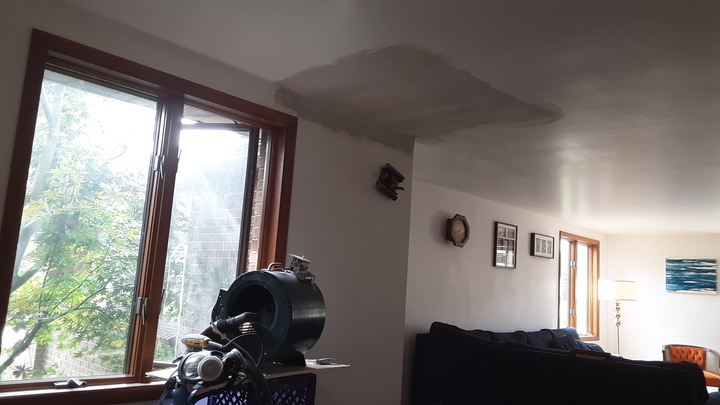I can remove the concrete that is soft and I
could patch over with new concrete?
My house was built in 1942. The septic tank was home
made using brick and mortar. You could remove the
bad concrete and repair the hole with brick and
mortar. Probably last your lifetime.
Is there some type of product that will adhere to
the old hard concrete?
I don't know if this product is salt proof.
I can tell you it will adhere to concrete and it
is waterproof.
I had to drill holes in my basement wall to run
conduit and water lines out. I used 90 minute
durabond to fill in around the conduit and water
line.
Not sure how thick you can apply this over old
concrete. About 1/8 inch at a time. Unlike other
drywall mud, this stuff doesn't shrink after it
drys.
It might be worth a try.
I use 90 minute durabond for my first coats of
mud when I drywall. Set the tape with durabond
too.
I sanded the durabond before top coating it with white drywall mud.
I'll guarantee you I won't have drywall cracks or tape failures.




